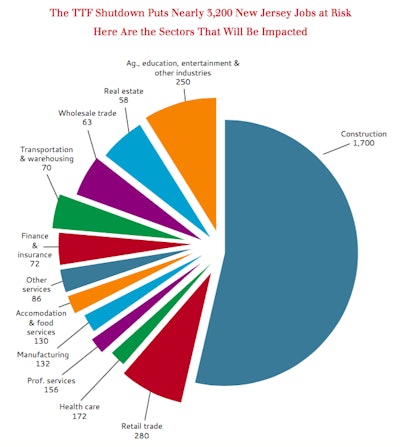The American Road & Transportation Builders Association (ARTBA) estimates the first week of the recent New Jersey transportation project shutdown could idle 1,700 workers and cost taxpayers $41 million.

ARTBA Chief Economist Dr. Allison Premo Black says a prolonged shutdown could cost up to $1.3 million per day in lost sales, wage and economic activity, and affect 1,500 non-construction jobs.
“There are no winners in this situation,” Black says. “Important transportation projects that are designed to improve safety and reduce traffic congestion will come to a grinding halt. Workers will be sidelined and lose wages. It’s a recipe for market chaos.”
For the first week of project shutdowns, Black estimates:
- $39 million in total mobilization costs—this includes shutting down project sites to stop construction activity, plus remobilizing when work can begin again.
- Despite the order to stop work, contractors will continue to spend $1.7 million per week to ensure public safety and maintain existing facilities at the job sites. This includes weekly rent for field offices on major projects and expenditures for project maintenance and traffic control. These expenditures will continue for the duration of the shutdown and will be paid by the contractor. Whether or not they will be reimbursed by the state, the Governor has not said. This could have a significant negative impact for smaller companies that do not have a large cash reserve.
- An estimated 1,300 to 1,700 construction workers will be displaced the first week—approximately 9 percent of all transportation construction employees in New Jersey.
- These workers collectively earn between $1.4 and $1.9 million each week. As hourly employees, many will not get paid if they do not work.
Black’s full report is available here.








